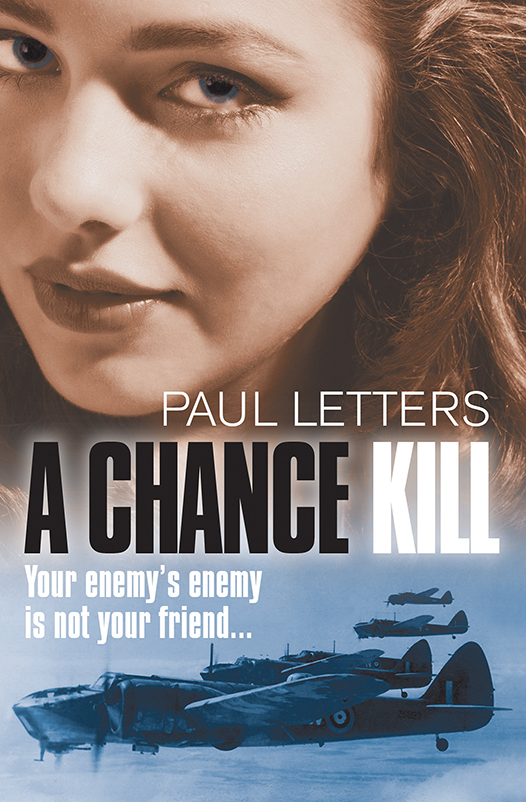Early in his wartime premiership, Winston Churchill had a dilemma to consider: should women be spies?
Churchill’s decision would set the tone for the rest of the war. Of the two main organizations running intelligence agents inside occupied Europe, Britain’s SOE (Special Operations Executive) had to take the lead ahead of America’s OSS (Office of Strategic Services, forerunner to the CIA) because the UK became embroiled in the war ahead of the US. Both agencies employed civilians – although not, initially, women – to covertly provide strategic information in the midst of their seemingly ordinary lives.
 |
| Virginia Hall |
In reality, Churchill and British intelligence chiefs were deciding not whether females should be spies – they could hardly stop them doing so informally – but whether they should be parachuted into occupied Europe. In reality, women across Europe were already spying for the allies. Young Polish aristocrat Krystyna Skarbek (later known as Christine Granville) had been spying for Britain, feeding information and then people in and out of Poland, since 1939 – months before Churchill became Prime Minister (May 1940) and SOE was founded (July 1940). (President Roosevelt tasked Colonel William J Donovan to set-up OSS in 1941-42.)
There was much debate within the Baker Street headquarters of SOE as to whether it was legal to
 |
| Krystyna Skarbek |
Throughout occupied Europe the Nazis were rounding up men for forced labour in Germany – but not women. Women could travel more freely, on trains, trams or bicycles. Early in 1942, Churchill nodded through his assent regarding female agents, but the matter was to be kept deniably secret.
But was it a woman’s role? Another SOE agent, Pearl Witherington – whose weapons instructors regarded her “the best shot (male or female) we have yet had” – refused to carry a gun. She proclaimed, “I don't think it's a woman's role to kill.”
But not all female agents saw their role as limited by gender. Virginia Hall joined SOE and regarded blowing up a lorry full of German soldiers with a bazooka as par for the course she played.
Virginia would spend almost three years in fascist-controlled Europe, primarily supporting local resistance groups in France. In 1944 she changed employer from the UK’s SOE to the US’s OSS (CIA). Drop-zone maps were prepared, safe houses arranged and resistance fighters trained. The Nazis labeled “the woman with the limp” as one of their most wanted spies; she taught herself to walk without a limp, and she successfully evaded capture.
In addition to the British quietly recognizing her as a Member of the Order of the British Empire (MBE), William J Donovan – now a General – ensured she would become the only female civilian to be awarded the USA’s Distinguished Service Cross. In fact, he wrote to President Truman suggesting he may wish to present the award personally. However, Virginia Hall intervened. She sought to avoid the publicity entailed with meeting the President because she was “still operational and most anxious to get busy”. (Her CIA career would continue until her retirement to a farm in Maryland in 1966.)
 |
| Pearl Witherington |
The Allies decided to employ female agents to perform uncivil deeds, but the records show us extraordinary heroism, cunning and resourcefulness – from what had appeared to be ordinary women.
Binney, Marcus. The Women who Lived for Danger: The Women Agents of SOE in the Second World War. London: Hodder & Stoughton,
2002.
Foot, M R D. Special Operations Executive: Outline History of the Special
Operations Executive, 1940-46. London: Pimlico, 1999.
Helm, Sarah. A Life In Secrets: Vera Atkins and the Lost Agents of SOE.
London: Abacus, 2005.
http://womenshistory.about.com/od/spies/a/women_spies_ww_4.htm
http://www.express.co.uk/news/uk/386800/Churchill-s-heroines-How-Britain-s-female-secret-agents-changed-the-course-of-WWII
About A Chance Kill
Publication Date: February 26, 2015 | Silverwood Books | Formats: eBook, Paperback | Pages: 300
Genre: Historical Fiction
A Chance Kill is a wartime thriller where an old-fashioned love story forges through a conspiracy of authentic, action-filled adventures.
Based upon the author’s grandmother’s experience, seventeen-year-old Polish catholic Dyta Zajac finds herself forced away from wartime Warsaw due to her family’s shadowy connections. Dyta’s time on the run sets her on a path towards confronting the ultimate Nazi.
Half a continent away, an RAF bomber crew embarks upon Britain’s little-known first offensive of the war. Courtship edges Dyta’s destiny closer to that of members of the RAF crew – and toward the Allies’ most brazen covert operation to strike at the Nazi elite.
But more dangerous than the enemy, however, is the assumption that your enemy’s enemy is your friend...
Buy A Chance Kill
Amazon USAmazon UK
Barnes & Noble
Book Depository
Kobo
 About the Author
About the Author
Author Paul Letters deals with a physical disability (which is twisted and transposed to a character in A Chance Kill). It prompted Paul to change his life and give up full-time teaching to write. He studied history, education, international affairs and literary journalism at the Universities of Cardiff, Oxford and Hong Kong.Paul is from England and now lives in the jungled fringes of Hong Kong. He writes freelance journalism, most often for the South China Morning Post, and is currently working on a World War Two novel set in Hong Kong.
For more information please visit Paul Letters' website. You can also find him on Facebook, Goodreads, and Twitter. Follow the WWII 75 Years On Twitter page for daily tweets on what happened in history 75 years ago.

















No comments:
Post a Comment